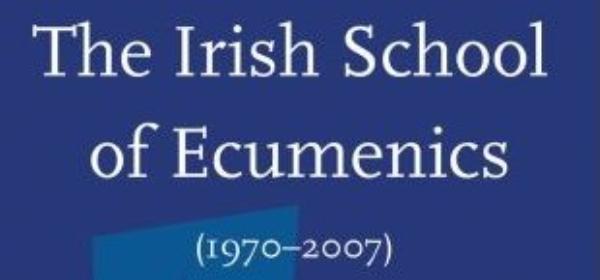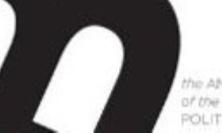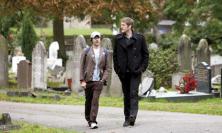This collection of essays is a ‘memoir’ rather than strictly speaking a history of the Irish School of Ecumenics. The School’s founder and first director, Michael Hurley SJ, has persuaded his successors, thus far seven in all, to contribute their recollections of the ups and downs of the School during their respective tenures in office. The forward to the volume is provided by the distinguished pen of the Irish Anglican David Ford, Regius Professor of Divinity at Cambridge University.
In some respects the most vivid pieces are those by Hurley himself and his immediate successor, the Presbyterian expert on inter-faith dialogue, Robin Boyd. They discuss the School’s early years and the struggles for acceptance and recognition of the School’s ethos and work from the Irish ecclesiastical establishment both Catholic and Protestant. The initial impetus for the foundation of the new ecumenical enterprise arose from Michael Hurley’s experience in the heady years of the 1960s when he was much in demand as perhaps Ireland’s only Catholic ecumenical expert. Those were years of exuberance following Vatican II when anything seemed possible and Hurley’s efforts were met with a broad if informal recognition by many individuals within the Irish Churches and Irish society at large. From his experiences as a ‘practicing ecumenist’, while continuing to teach theology at the Jesuit seminary in Dublin, there gradually dawned the idea of an institute in Dublin for the academic study of ecumenism. In time this developed to include not just inter-church issues, but the examination of inter-faith relations and the question of the relationship between religion and society.
The beginnings were not easy. When it was announced in May 1970 that Hurley, supported in principle by the Irish Jesuits, intended to start a school of ecumenics it had, strictly speaking, no funding, no academic accreditation and not even a location. Although opposition was to be expected from the protean and arch-conservative archbishop of Dublin, John Charles McQuaid, whose deep suspicions Hurley had already raised by his ecumenical activities, in the end McQuaid acquiesced in the new enterprise. He did, however, wonder in what way the School would facilitate conversions of Protestants to the one true faith and supposed this to be ‘God’s secret’.
Further impetus to the School’s existence was given by the outbreak of violent sectarian strife in Northern Ireland in 1969. The churches denied that their respective views on what it meant to be a Christian actually contributed in any way to the state of inter-community hostility, nevertheless the fact that Irish ‘Christians’ were murdering one another, for whatever reason, was a source of scandal that the School of Ecumenics sought to explore and understand. Indeed, perhaps one of the most significant contributions which the School has made to reconciliation in Ireland is its Moving Beyond Sectarianism report of 2001.
The tentative and uncertain beginnings were matched by a fragility and uncertainty which lasted for much of the first three decades of the School’s life. At present, however, the ISE is fully integrated within Trinity College Dublin, although it is permitted by the Trinity authorities to maintain its own unique structure and ethos. The association with Trinity goes back to 1983, when it became the degree-awarding body, a role which had previously been occupied by the University of Hull, thanks to the efforts of Professor Anthony Hanson, sometime canon theologian at St Anne’s Cathedral, Belfast. The fact than an English University had to be sought in the early years to give the School its academic standing bespeaks volumes about the state of Irish inter-church and academic relations at the end of the 1960s.
The Irish School of Ecumenics 1970-2008 is very much ‘history from above’ since the authors were all deeply involved with the governance and direction of the institute. The work therefore, understandably, lacks a broader perspective that could only come from other observers of the Irish ecclesiastical scene in the years under discussion. There is also perhaps a lack of self-criticism. Some issues are alluded to and left undeveloped. One cannot help thinking that the School’s almost Byzantine structure with Patrons, Council and Boards aplenty contributed in some way to the less than smooth running of the enterprise especially in its years of crisis in the 1990s. The tension between the development of ‘Peace Studies’ as a separate discipline in the School distinct from the more theological enterprise of ecumenical studies receives the less than candid attention it deserves. One can but speculate that such tension contributed as much to the periods of staff demoralization as did the lack of financial support from the Irish churches, a subject which is adverted to repeatedly to the point of monotony.
Although there is, perhaps justifiably, much overt and implied criticism of the Catholic Church’s less than enthusiastic support for the School it is also clear that the most reluctant patronage appears to have come from the Presbyterian Church considered as a body. Nevertheless individual Presbyterians were among its keenest supporters. Irish Presbyterianism has long been suspicious of Ecumenism and even at the international level withdrew from the World Council of Churches. Furthermore on an infamous occasion the General Assembly of the Presbyterian Church in Ireland debated a motion of censure against the principal of its own theological college who had invited Michael Hurley to lecture to the College’s students. The motion was lost, by a small majority.
This is a useful collection not just because it represents a tentative ‘history’ of the School, but also because it gives valuable insight into the history of the Irish Churches over the last forty years. It also charts, as one would expect, something of the development of ecumenism in that period. We have passed from an ecumenical spring to a winter in ecumenical relations and indeed almost to a point where the ecumenical movement – as a movement – seems to be at an end. Nevertheless we live in an age where the need of Christian unity is more imperative than ever. Clearly the ISE will continue to provide a forum within which academic research and personal encounter will help make that aspiration an ever more present reality. As an institution the School continues to flourish and thus it fulfills one aspect of its motto Floreat ut Pereat: may it flourish in order to perish. The goal of Christianity unity, however, seems as distant today as it was when the ecumenical movement began a hundred years ago. The School will therefore continue for quite some time to come.
Oliver P Rafferty SJ
Oliver Rafferty is a graduate of the Irish School of Ecumenics and a historian. His latest book is The Catholic Church and the Protestant State: nineteenth-century Irish realities. (Four Courts Press: Dublin, 2008).






